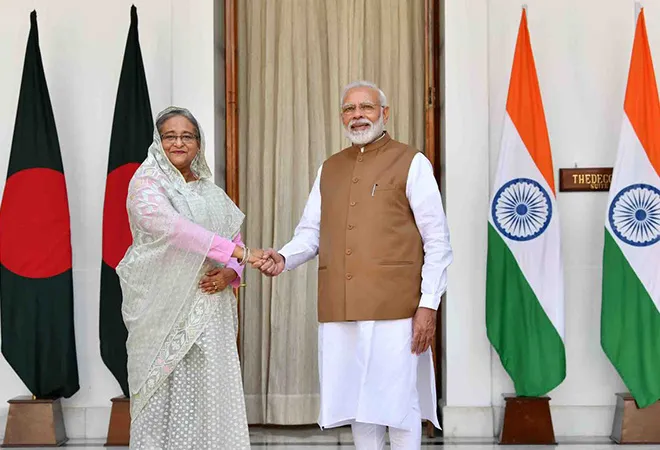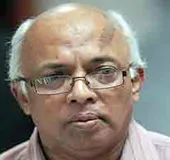
Excitement of an unspoken kind defines political conditions in Bangladesh at present. With the Election Commission now having announced a new schedule for the general elections --- the voting will take place on 30 December instead of the earlier announced 23 December --- all the signs are there of this year’s parliamentary polls being by and large a participatory one. That is in quite good contrast to the circumstances in January 2014, when the Awami League and its allies had a walkover through a boycott of the elections by the Bangladesh Nationalist Party. In 2014, as many as 153 members of the 300-member Jatiyo Sangsad, or National Assembly, were elected to the House unopposed. Though there was no violation of the constitution in the way the elections were conducted, questions were raised about the moral aspects of the exercise.
This time round, conditions are clearly not as gloomy as they were five years ago. Of course, the recent series of consultations --- the term in popular use has been ‘dialogue’ --- between the government and the various strands of the political opposition on the modalities of the election did not lead to any concrete understanding between the two sides. The ruling Awami League has rejected every demand of the opposition, save only to agree that a level playing field would be provided for all candidates and parties in the run-up to the elections. That has sorely disappointed the opposition, which now operates fundamentally under three umbrellas. The most significant one is the Jatiyo Oikyo Front led by former foreign minister Kamal Hossain and including the BNP as its foremost component. Another is the Jukto Front headed by former president AQM Badruddoza Chowdhury, while a smattering of leftist parties have come together as the Left Democratic Alliance (LDA).
Kamal Hossain’s alliance has hardly had any choice other than deciding to throw its hat into the electoral ring. It made it known, however, that it favoured a deferment of the elections by a month, which is constitutionally possible as long as a new government can take office by 28 January 2019. The Chief Election Commissioner appears to have along part of the way with the idea, with the elections being deferred by a week. For its part, the Awami League, through its general secretary Obaidul Quader, informally let it be known that the issue was one on which the Election Commission would decide. The commission has now acted, but perhaps not to the satisfaction of the opposition.
Bangladesh’s political parties have already taken the plunge into the campaign for the 30 December vote. The ruling Awami League appears confident of a return to power, given that the opposition is yet to come up with an image of solidity where matching the ruling party in campaigning is concerned. The long queues before the Awami League office for party nomination forms were a patent hint not only of the party’s self-assurance regarding the forthcoming elections but also a reflection of the political ambitions which suddenly have arisen among people with little or no experience in politics. Celebrities across a wide range of professions have sought Awami League nominations for parliament. Movie actors, theatre personalities, cricket players and vocal artistes have been making a beeline to the central office of the Awami League to collect nomination forms. There are too reports of a former election commissioner and a former governor of the country’s central bank seeking Awami League nominations for the election.
Obviously, the Awami League is in buoyant mood. Among the lawmakers it now has are drama artistes, one of whom is Asaduzzaman Noor, the present minister for culture, the other being Tarana Halim, the minister of state for information. There are too a good range of retired civil and military officers as well as businessmen who have in the last decade served as lawmakers and ministers in the Awami League government. A fresh influx of celebrities and former officials can only fan the party’s hope that it will be able to return to office next with a remarkable majority.
The opposition is clearly at a disadvantage. The demand made by Kamal Hossain and the BNP for Begum Khaleda Zia’s release from prison before the elections has been brushed aside by the government on the ground that the issue is within the jurisdiction of the courts. The opposition call for the resignation of the government and its replacement by an interim non-political administration to oversee the elections has also been dismissed by Prime Minister Sheikh Hasina through a reference to constitutional provisions. The 15th amendment to the constitution, adopted by parliament soon after the Awami League returned to power in January 2009, repealed the provision related to the setting up of a caretaker government ninety days prior to elections. The government has made it known, however, that a new, reduced cabinet headed by Sheikh Hasina, with no power to initiate policy but restricted to overseeing the elections will be in place. There is little in the proposal for the opposition to be happy about. But, again, the opposition is structurally weak and yet to formulate a clear set of policies it means to pursue if and when it comes to power. For now, it has little choice other than going to the polls in its straitened circumstances.
The ruling Awami League, in contrast to its attitude five years ago, appears serious about ensuring an inclusive election next month. It knows it needs to win, given the imperative of continuity being the engine driving the country forward, at least for the next five years. Awami League politicians have been stressing the progress in the socio-economic sector the government has presided over and surely would not want a brake on it.
The opposition will find it hard to compete with the ruling party on issues of social and economic development, which is why it will be necessary for it to build its political case for unfettered democracy in the country. The arrests of opposition activists, disappearances of citizens, restrictions on opposition rallies and corruption are some of the issues the opposition might work on. In the brief time remaining between now and the election, that looks like a tall order for those who would like nothing better than to see the back of the ruling party.
The views expressed above belong to the author(s). ORF research and analyses now available on Telegram! Click here to access our curated content — blogs, longforms and interviews.




 PREV
PREV


